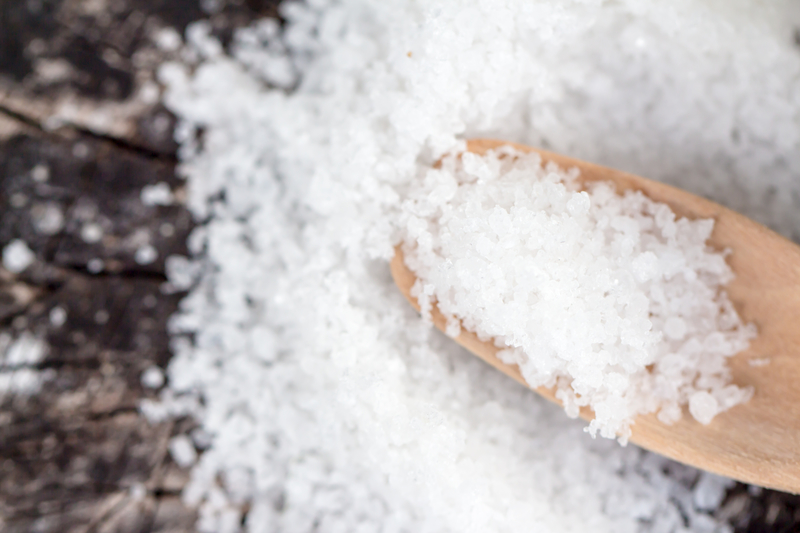History of the Tooth Fairy
March 17, 2018How Citrus Affects Your Oral Health
March 31, 2018If you get mouth sores or other problems often, you can decrease their intensity and frequency by using salt water mouth rinses. There is generally a natural healing method for many health problems, both large and small. Salt is one of those natural healing methods for oral health problems. In fact, the use of salt for mouth healing dates back even to Ancient Egyptian times in 1600 B.C. Salt can help reduce the size and pain of a canker sore within the first 24 hours. It inhibits dental bacteria and helps your mouth to heal. Find out how this simple substance can change your oral health and make it better today!
Using Salt for Mouth Sores
If you’ve ever had a mouth sore, then you know that they’re no fun. Some common mouth sores that people get include:
- Cold Sores: These sores are highly contagious and are a result of the herpes simplex virus. Many people are born with this virus or get it from contact with others. You get a tiny, fluid-filled blister on and around your lips that are painful.
- Canker Sores: These are sores that can come on as a result of medicine use, stress, anxiety, and more. They happen inside the mouth on the cheeks and gums and are either white or yellow with a red ring around them. You can see rapid mouth healing of these sores by using salt-water rinses.
- Fungal Infections: One such example is thrush. This is a buildup of yeast in the mouth that spreads to the soft tissues of your mouth. It can lead to difficulty swallowing, a sore throat and white spots in your mouth.
- Abscess: If bacteria gets into the nerve of your tooth (through severe tooth decay that hasn’t been fixed), it can leave you with an abscess. This is a pocket of infection that can cause a severe toothache, burning, heat, and sensitivity to hot and cold. It can also lead to sickness and fever if it’s not treated.
- Wounds: You may have bit your tongue, lip or cheek or had an orthodontic wire or bracket break. Sometimes these appliances have a pokey wire that cuts the inside of your mouth. If that is the case, see your orthodontist immediately to correct the problem. Some dental treatments—especially tooth extractions—require stitches and leave you with a wound that needs to heal for some time.
Salt Uses for Overall Better Health
We mentioned that you can have rapid mouth healing for canker sores by using salt. Salt is a natural compound found in nature that has been used for centuries by many cultures for healing. Ancient Egyptians often used salt in healing recipes. Many cultures use salt on wounds or salt-water rinses in the mouth as an anti-infective and to decrease inflammation and pain. Studies show that salt helps mouth healing if you have a sore throat, gum or cheek sores, or if you have a wound or dental incision that is healing. In fact, many dentists, orthodontists and endodontists recommend salt-water rinses to help mouth healing go faster. Adding extra salt to your mouth can help reduce mouth bacteria as well, because it makes your mouth less acidic, and bacteria need an acidic environment to survive.
Salt Water Rinses
A salt water rinse is very basic. You get a warm cup or glass of water and dissolve salt into the water. Hot water (but not burning) and stirring help to dissolve the salt so it doesn’t pool on the bottom of the cup. Add an ample amount of salt to your glass until it tastes fairly salty. You then take a swig of the salt and swish it in your mouth for 20-30 seconds. Do this several times a day to help mouth healing go faster. The more salt-water rinses you do, the quicker a mouth sore or incision can heal.
This is because salt is an isotonic solution, meaning that it is a solution that works naturally for the body because the body contains salts and other minerals. Using chemicals, mouthwashes and other substances won’t help heal mouth sores, but can hurt them much more. Plus, using these will be downright painful. Salt-water rinses can gently heal mouth sores because that compound is already found all over the body.
Healing for Teeth
Sometimes, you don’t have a mouth sore that needs to be healed, but decay that has happened in the hard tissues of your mouth. Those hard tissues are your teeth, and they need proper attention too. Although salt can’t heal a decayed tooth, a dentist can. This is why dentists exist in the first place: to help treat decay and damage in your mouth. Tooth decay is the proper term for a cavity, or decay that has happened in your tooth. You get this decay from eating and drinking without brushing and flossing your teeth enough.
Your mouth can’t repair a tooth like it can a mouth sore. A dentist has to actually go into your mouth, remove decayed parts of your teeth, and fill the space with synthetic material. This is a dental filling. We wish salt could easily fix tooth decay, but it can’t. However, if you’ve had dental work done and have stitches (such as a tooth extraction), mouth healing can definitely be accelerated with salt-water rinses.
Prevention and Healing
We can help you with all your tooth problems and instruct you on what to do if you have a cut or sore in your mouth, tongue, lip, cheek and more. For accelerated mouth healing, try using a warm salt-water rinse and see how fast you heal. For questions about salt and how to do a rinse properly, call Family & Cosmetic Dentistry of the Rockies today at (970) 267-0993!







